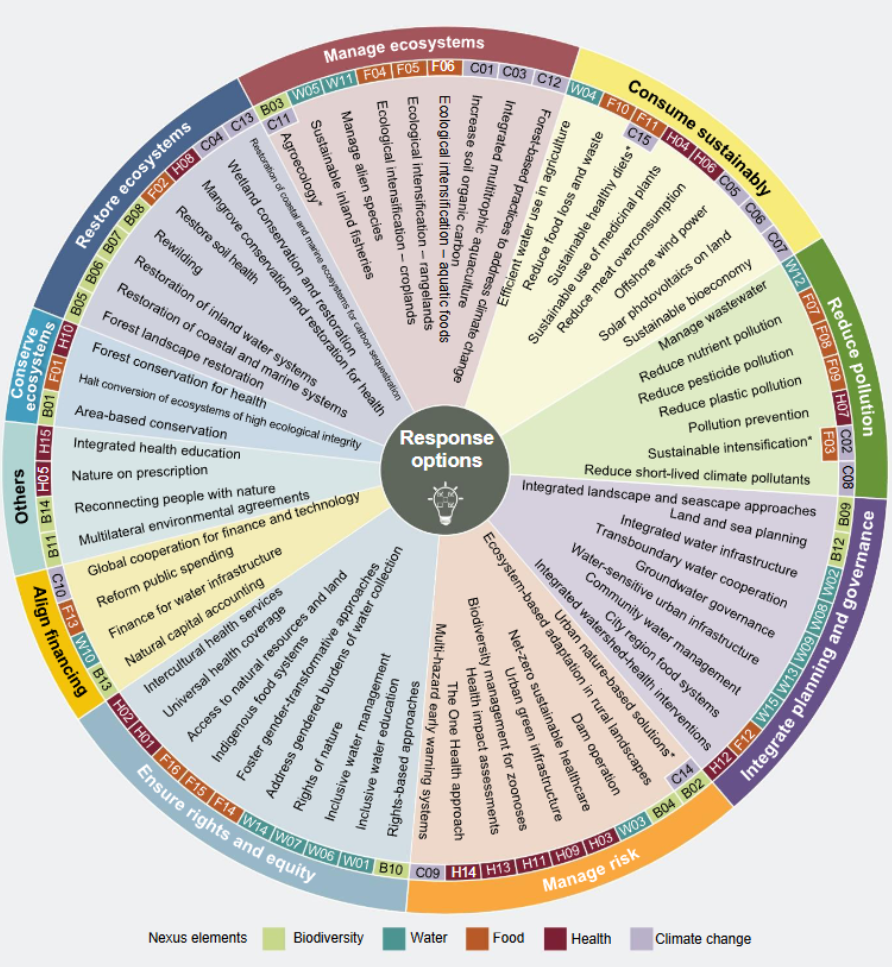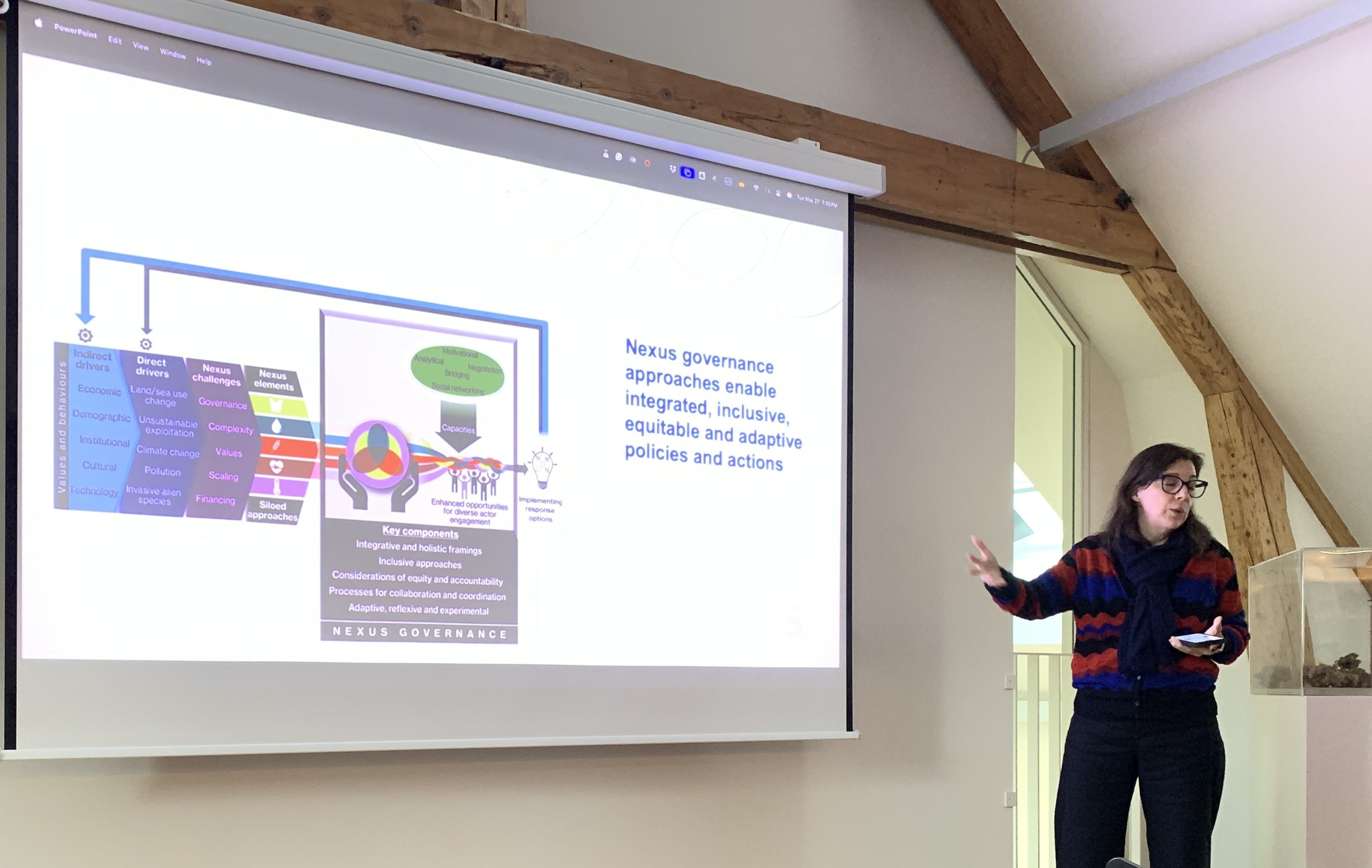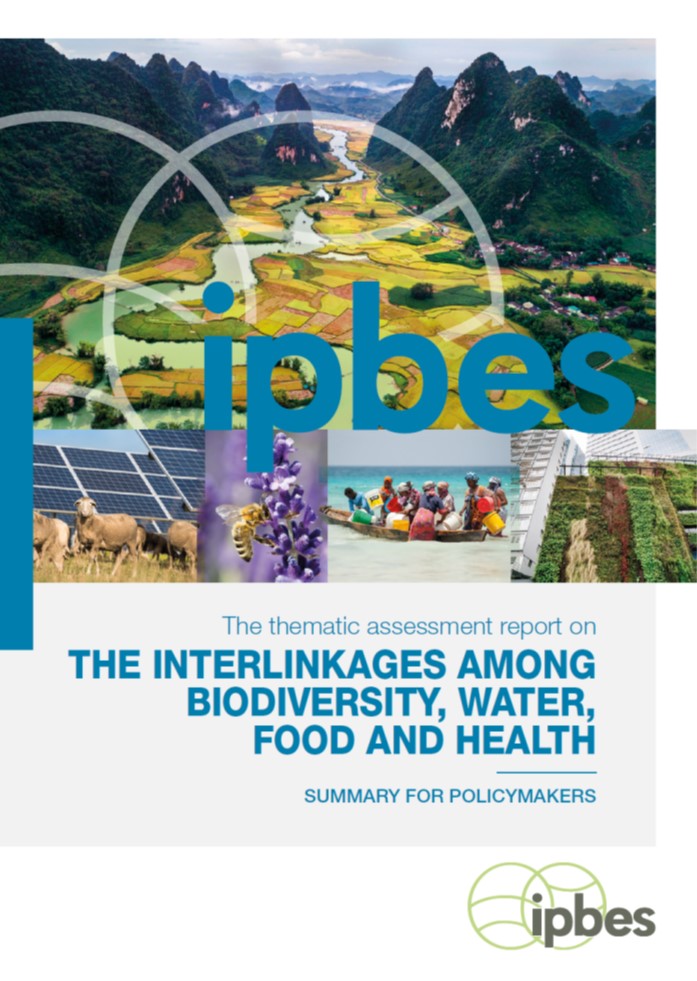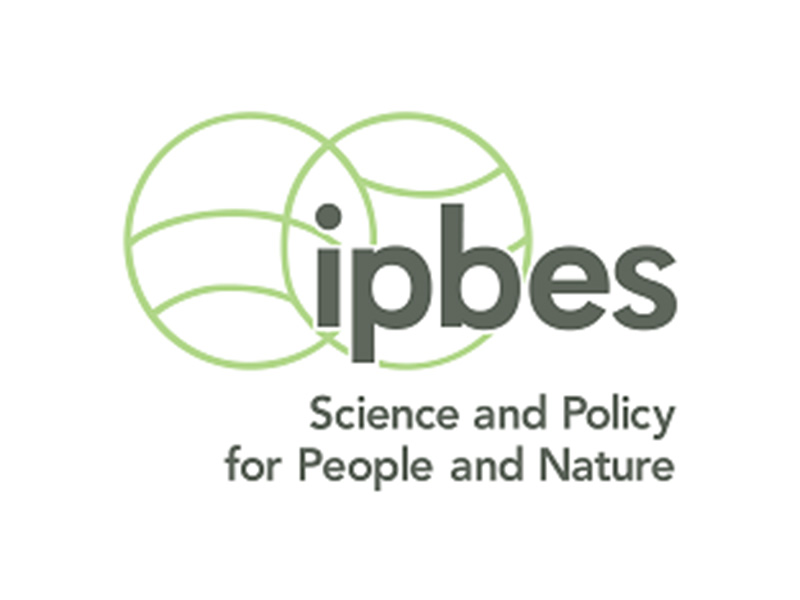Beyond the myth of the “Top Three”
On the week of 26 May 2025, ten authors* of Chapter 2 of the IPBES Nexus Assessment gathered at the Luxembourg Centre for Socio-Environmental Systems (LCSES). IPBES – Intergovernmental Science-Policy Platform on Biodiversity and Ecosystem Services – advises the United Nations Convention on Biological Diversity. Its IPBES Nexus Assessment, released in December 2024 at the plenary in Namibia, explores the interlinkages among biodiversity, water, food, climate and health.
Over four days, the international working group worked collaboratively on scientific publications based on the Assessment. Hosted at the historic Maison Schuman in Luxembourg, the team also opened its doors to the public with a seminar sharing key insights and reflections five months after the report’s release.
The question everyone asks
As Prof. Ralf Seppelt, IPBES coordinating lead author from the University of Luxembourg, noted: “People often ask us: What are the top three things to do? The truth is—there is no such list.” Solutions exist, but they are interconnected and context-dependent. The key element of success is collaboration and acknowledging that things are interrelated in an environmental polycrisis.
Prof. Pamela McElwee, Co-Chair of the Assessment from the State University of New Jersey, USA (see photo below), explained that the report synthesised 71 actionable solutions from 6,500 scientific publications, each evaluated for its impact across the five Nexus elements. The message is clear: addressing issues in isolation no longer works. Interdisciplinary and interministerial cooperation is essential.

Many response options already exist that a range of actors can implement.
(Source: Summary for policymakers – IPBES Nexus Assessment (IPBES/11/12/Add.1), figure SPM 7 p.24)
The 71 response options assessed are displayed in wedges representing 10 broad categories of actions (labelled on the outer edge of the circle).
From data to decisions
The scientific challenge now is to map cause-and-effect interactions across at least three Nexus elements using global data and trend analysis. This approach promises greater impact than tackling problems one by one. It also opens opportunities for technological innovation and for embedding solutions into new socio-economic models and behavioural shifts.
Funding and implementation
Beyond identifying solutions, the report outlines pathways for change – starting with funding models. Current investments in climate mitigation often overlook biodiversity impacts. To bridge this gap, IPBES teams are developing decision-support tools to identify barriers and drivers of change. A database of 200 such tools will be released soon.

Health as a driver
Prof. David Hayman, Coordinating Lead Author from Massey University, New Zealand, highlighted how drivers of biodiversity loss and human health are deeply linked. Emerging signals include:
- Infectious disease risks from the land- and sea-use change, unstainable exploitation and climate change.
- Air pollution causing ~9 million premature deaths in 2019 (~16% of global deaths).
- Invasive alien species undermining human well-being.
- Extreme climate events with a direct impact on the environment (heat events, floods, wildfires), but also on mental health (stress, anxiety).
The takeaway
Interlinked solutions exist and suggest searching for synergies and fostering collaboration across policy areas of biodiversity, health, climate, food and water. From science to impact, the challenge is to create sustainable value – through policy decisions, corporate innovations and individual choices – with Planetary Health as our common goal.
The event concluded with an open dialogue between the audience and IPBES experts, a reminder that collaboration is key to turning knowledge into action.
Author(s)
Further reading:
* Workshop participants from left to right in the photo: Prof. Ralf Seppelt (1), Prof. David Hayman (2), Dr. Roxanne Suzette Lorilla (3), Julia Fischer (4), Dr. Paula Prist (5), Jun.-Prof. Lisa Biber-Freudenberger (6), Dr. Christian Levers (7), Dr. Földvári Gábor (8), Prof. Pamela McElwee (9), Dr. Pradeep K. Dubey (10)


